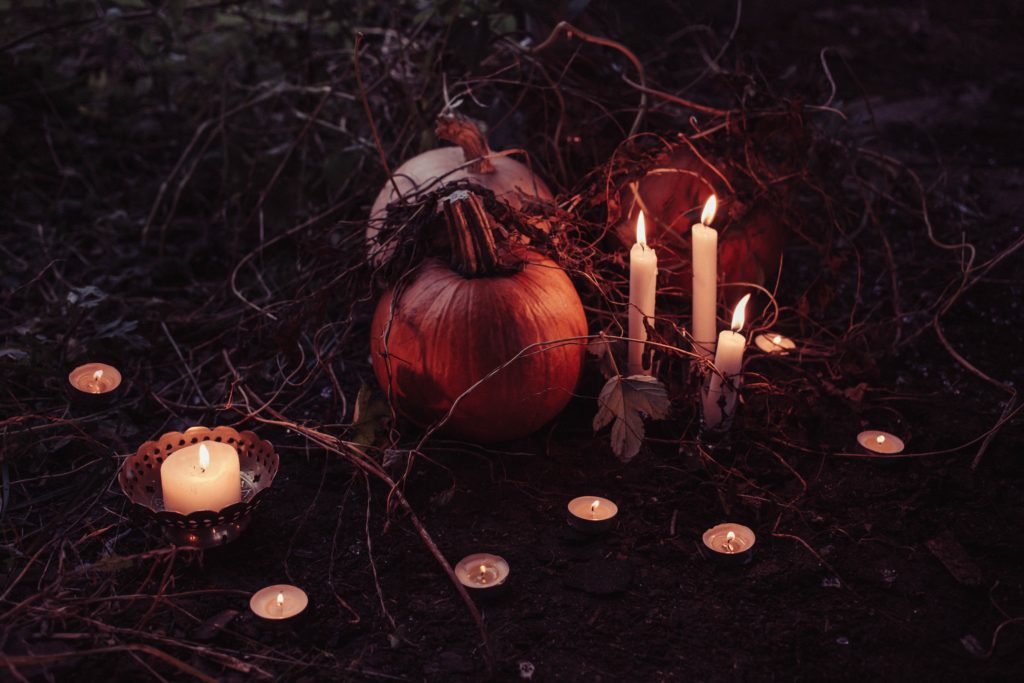
Fall is my absolute favorite season of the entire year and in Michigan, where I reside, it seems to be the time when God is showing off His marvelous artistry through the bright, beautiful shades of red, orange and green that cover the terrain. Combine the vibrant colors with the crisp, cool air and fragrant smells of pumpkins and apples everywhere you venture and Fall is a match-made in sweater weather heaven.
But smack-dab in the middle of my favorite season falls a holiday that is celebrated nationwide by most – Halloween. Regardless of whether you choose to participate in this holiday or not, Halloween is nearly impossible to avoid. From costume stores to increased candy sales at retailers, to decorated front yards, horror movies or other Halloween-themed shows popping up on television and in theaters plus the relentless trick-or-treaters come Halloween night, it seems Halloween has invaded the entire month of October.
If I’m being quite honest, I never really considered the origin or significance of this holiday before starting to work on this piece. I always saw it as a day of fun and dress-up where you indulged in way too much candy while racking up many steps on your fitness tracker. For me, it was always an exciting day of make-believe, laughter, sugar highs and memories made with family and friends.
Yet, after reaching out to many of my Christian friends and acquiring the viewpoints from those on my social media platforms (from various seasons of life, faith backgrounds, and geographical locations), I’ve come to learn my perspective of what I thought was a fun, carefree holiday is actually quite controversial and a heavy subject for followers of Christ.
Is it really wrong to “celebrate” Halloween and is there a difference between celebrating and participating? In doing so, are we honoring this holiday’s history and everything it traditionally represents? Are we teaching Christian children the origins of Halloween or are we simply looking past them in order to partake in a night of lighthearted amusement? Has Halloween traditionally lost its meaning due to commercialization, worldwide popularity, and other appeal, much like the holidays of Christmas and Easter?
These questions seemed to be the ones that conflict the hearts of Christians today. So let’s explore them, shall we?

Halloween‘s Origin
Halloween originated about 2,000 years ago with the ancient Celtic festival called Samhain. Samhain, celebrated on October 31, marked the end of summer and harvest season and the start of their new year on November 1 and the long, dark and cold months of winter that followed. Because Celts considered harvest season to be a time of life-producing opportunities and winter as a time of death, they believed the worlds of the living and the dead blended together on the night of the last day of the year, October 31. On October 31, during the festival of Samhain, spirits were believed to roam earth freely and the Celts would celebrate by lighting bonfires, wearing costumes to ward off ghosts, and attempting to predict each other’s fortunes.
Hundreds of years later in the 8th century, Pope Gregory III designated November 1 as a time to honor all Christian saints and martyrs and nominated the day as, “All Saints Day.” Eventually, November 2 became designated as “All Souls Day” as a day to honor the souls of all who had died. As Christianity spread into the Celtic regions, All Saints Day gradually incorporated some of the ancient traditions of Samhain and became known as “All Hallows Eve” or “The Eve of All Saints Day”, which ultimately morphed into Halloween. By the time Halloween reached the United States in the late 1800s, it had transformed into a holiday that focused more on community and neighborly gatherings rather than on witchcraft, ghosts, and other things of the occult. By the 20th century, Halloween had lost most of its superstitious and religious undertones and instead evolved into a day of fun activities like trick-or-treating, carving pumpkins, dressing in costumes and more.
Okay, so now that we know a little about the background of Halloween, what are some things Christians should consider about this annual holiday?
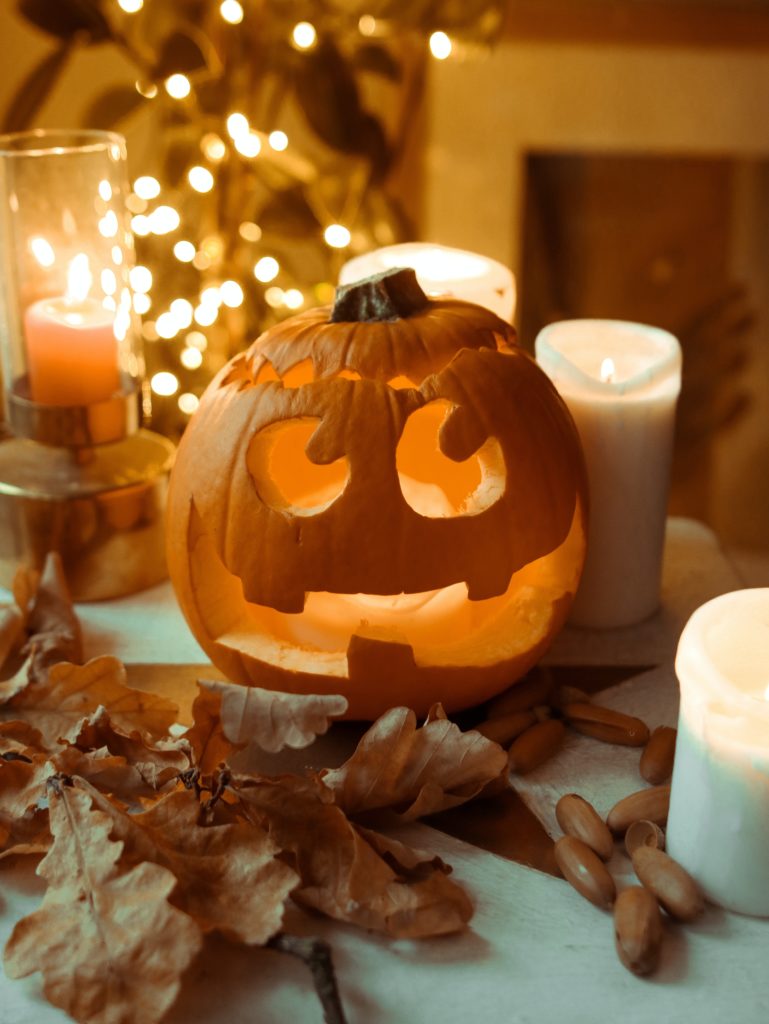
To do or not to do? That is the question!
First, we need to outline the difference between celebrating and participating.
Celebrating is a way to publicly honor the holiday in its tradition and origination.
Participating in Halloween would be electing to choose certain aspects of the holiday to partake in.
A great example of the celebrating versus honoring debate is seen in the commercialization and secularization of two other widely popular holidays, Christmas and Easter. As Christians, we know the importance of Christmas and Easter and honor both of these special days as a part of our faith background and foundation (Matthew 1:18-25, Galatians 4:4-5, John 1:14, John 3:6). However, what originally began as holidays that focused on the life and resurrection of the Messiah, Jesus Christ, is now more familiar to people worldwide as the holidays of Santa Claus and the Easter Bunny. Unbelievers participate in these holidays without batting an eye at its historical significance and religious affiliation.
The decision is yours to consider, but I would argue there is a difference between celebrating a holiday and participating in a holiday.
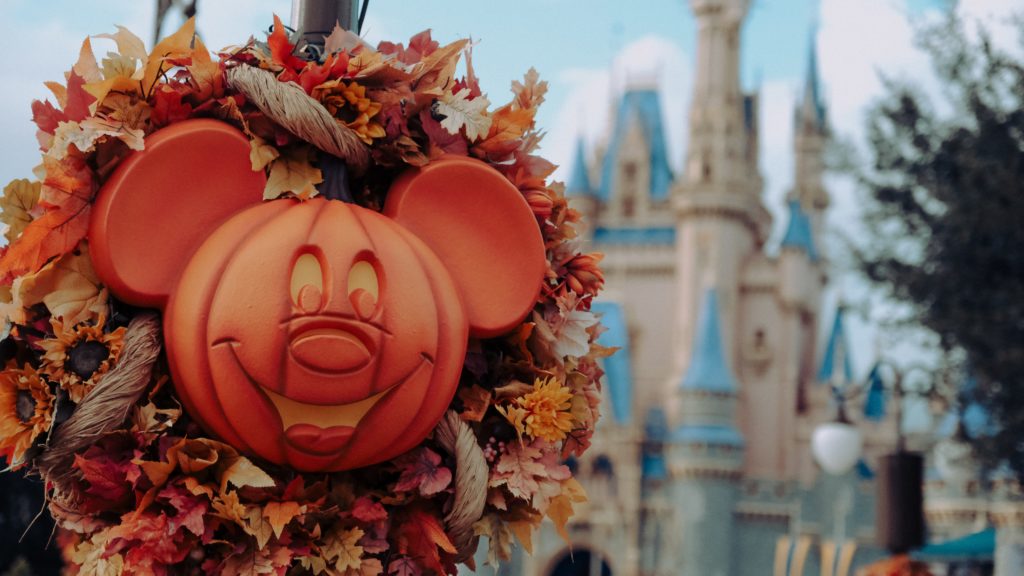
Or…Do something else!
Maybe you decided to totally eliminate Halloween from your vocabulary and thus your entire life. Or perhaps, you are still on the fence and unsure of what to do with this holiday that doesn’t seem to be losing popularity anytime soon.
Instead of walking the lines between do or don’t, consider doing something else!
Like hosting or attending a harvest festival with fall-themed activities like bobbling for apples, going on a hayride, pumpkin or gourd carving (there’s nothing inherently occult about carving these fragrant harvest gems), a trip through a corn maze and other outdoor games. If hosting at your home on Halloween, you could consider posting a sign on your front door to let trick-or-treaters know you are not observing Halloween. Either way, a harvest festival is a great way to gather people together, honor the Lord and celebrate another day of life! (Exodus 23:16, Joel 2:23, Ecclesiastes 9:7)
You could also use this holiday as a chance to go on a holiday of your own! It could be a staycation somewhere drive-able near where you live or a long weekend spent elsewhere. You could make the night a game night, movie night, or a night out bowling or engaging in other fun and fellowship.
Another idea that appeared to be quite common amongst the group of Christians I communicated with was using the holiday of Halloween as an opportunity to give back. Fall is a season in the United States that is home to both Halloween and Thanksgiving, so why not use both holidays as days to spread love, joy, and gratitude?
Consider visiting your local fire station, nursing home or other organization. If you have young children and visit a nursing home, I’m sure the elderly would thoroughly enjoy seeing them all happy and dressed up in costumes. [If Covid prohibits indoor visits, ask the nursing home if your children could do a costume parade around the facility or a costume show outside the windows of each resident’s individual room.] If you’re not dressing up or do not want to acknowledge the holiday at all, this is still a great opportunity to spend time bringing joy to those who are often overlooked (Nehemiah 8:10, Philemon 1:7). Wherever you choose to give back, I’m sure bringing along cider and donuts wouldn’t hurt either 🙂
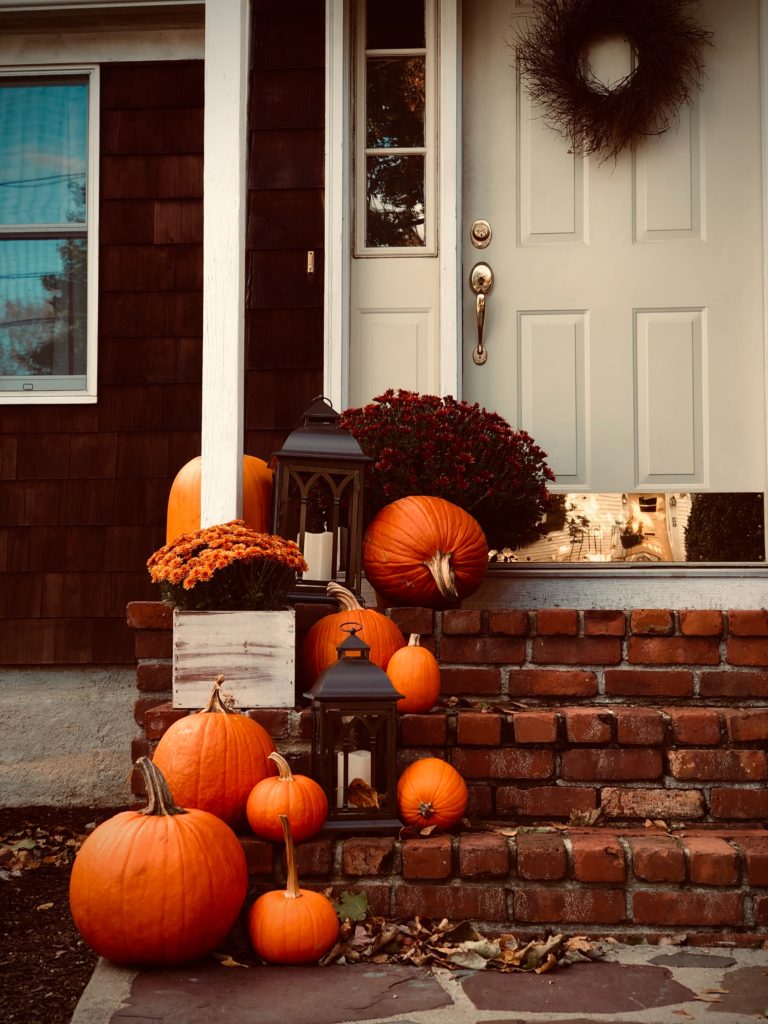
You can always choose to open your heart along with your home
Yes, Halloween is traditionally a pagan holiday but that doesn’t mean Christians should look the other way and allow lost souls to remain lost. Halloween is an excellent opportunity to practice what we believe and physically live out our faith (1 Peter 4:8-9).
Here are 3 ways to live out your faith on Halloween:
1.) Open up your home:
A very popular trend many Christians and churches are considering is opening up their hearts along with their homes (or churches) and using the holiday to witness to the public. The opportunities are endless for this, but some ideas are trunk-or-treat events at churches, hosting potluck dinners before trick-or-treating begins, or using your home as a “resting place” within your neighborhood for those who need a bathroom break, refreshment, or simply a place to warm up (in Michigan, most of my Halloween experiences have involved rain, sleet or snow).
2.) Send out God’s Word
If you decide to open your home to trick-or-treaters, consider attaching or tying short, encouraging bible verses to whatever candy you are handing out. Candy is what trick-or-treaters are after but adding the additional piece of scripture allows the giver of the candy to pass along an uplifting message along with the sweet. Likewise, if you choose to decorate your yard for Halloween, you could write scripture on make-believe tombstones and create a Spirit-filled graveyard guests can walk through. This may trigger reflection on mortality and eternity and perhaps will spark some conversation. It’s like an open tomb rather than an open door, so to speak, that has the ability to fill someone’s soul with life-giving Truth (Romans 12:21).
3.) Get out into the neighborhood
Halloween can offer a wonderful chance to connect with your community and engage your neighbors. Speaking for myself, Halloween night has been one of the few times I’ve actually seen or spoke with some of the people within my neighborhood. This always baffles me because we live in such close proximity to one another but for whatever reason we don’t tend to do life together on a regular basis.
As well, I’ve participated in many trunk-or-treat events at churches over the years where I’ve seen friends (who are unbelievers) attend with their children. Sometimes an invitation to church can be overwhelming or intimidating to an unbeliever but if an event is open to the public and just so happens to be at a church then maybe that is the nudge a person needs to step inside God’s house and experience glimpses of His love.
Loving your neighbor as yourself (Mark 12:31) is the second most important commandment after loving God with all of your heart (Mark:12:30). But if you’re being honest with yourself, how often do you actually show love to your neighbor?
What if we used a holiday that is traditionally full of darkness as an opportunity to light up the night? (Matthew 4:16, Matthew 5:16, John 1:5)
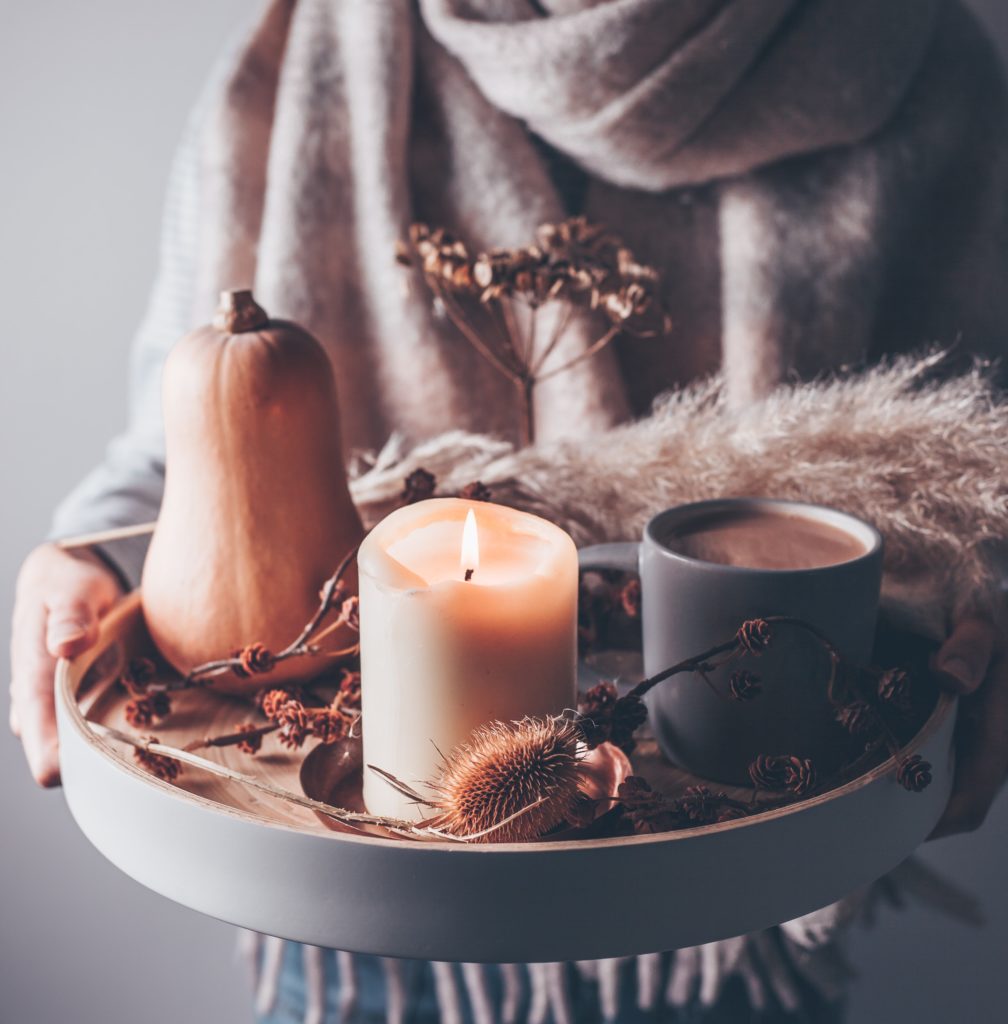
Whatever you do, Halloween is still a day the Lord has made
For many of the Christian individuals I spoke with about their feelings on Halloween, there was a clear cause and effect on how adults were raised experiencing (or not experiencing) this holiday and how they have chosen to raise their own children.
For example, those who grew up not recognizing or participating in any aspect Halloween said they feel they had missed out on a big piece of their childhood because they did not experience any Halloween festivities. This is important to consider as kids today are growing up way too fast mainly due to exposure of mature content, heavy cultural influence as well as technology overload.
Is it possible that participating in Halloween could give kids another chance to just be kids?
Halloween offers children the ability to partake in childlike, carefree fun such as receiving candy, spending a night outdoors and with friends, and imaginative play by dressing up in creative costumes.
However, as a mother of five children, I am well aware that the minds and hearts of young ones are like sponges and they will soak up everything being poured into them. I desire my children to develop and maintain a biblical worldview and therefore want them to be stewards of the faith in which they are raised. In terms of Halloween, I think it is vital for those participating to acknowledge the origin of the holiday before deciding on celebrating, participating, or forgoing the holiday.
Like most things in this life, we don’t want to tip-toe the line of what is from the world and what is from the Word, but rather, we should follow the footsteps of the One who goes before us.
When in doubt, ask yourself WWJD?
For me, I think Jesus would be the one doling out hugs, walking into homes or lending an ear on the sidewalk to engage in conversation with a stranger. I don’t think He would judge those who celebrate or participate in the holiday but would rather come alongside them and use the night as an opportunity to demonstrate what it means to truly love a neighbor. I believe He would encourage His followers to stick to their convictions (Ephesians 5:11, 2 Timothy 3:16), be alert (1 Peter 5:8), guard their hearts (Proverbs 4:23), and not conform to the ways of the world (Romans 12:2).
In a world that is seemingly more broken today than it was yesterday, Halloween is just another day where we can choose to exist in the world or make in impact in the world. We can do life or we can give life. I don’t know about you, but I want to live my life and live it to the fullest (John 10:10).
Halloween or not, anyone who is pursuing a life that follows Jesus and honors God should do their research and make informed decisions. At the end of the day, Halloween is a day just like any other day – a day to be celebrated because of the Lord!

“This day belongs to the Lord! Let’s celebrate and be glad today.”
Psalm 118:24 (CEV)
Recommended Resources
- Verity podcast with Phylicia Masonheimer: Episode #81 (released September 28, 2022), Discerning Halloween.
- Relatable with Allie Beth Stuckey podcast: Episode #697 (released October 25, 2022), Revealing the Real Origins of Halloween with guests Jeremiah Roberts & Andrew Soncrant from the Cultish podcast.
- The Mama Bear Apologetics Guide to Halloween (downloadable resource)
*I originally wrote and published this article for iBelieve.com in October 2018.